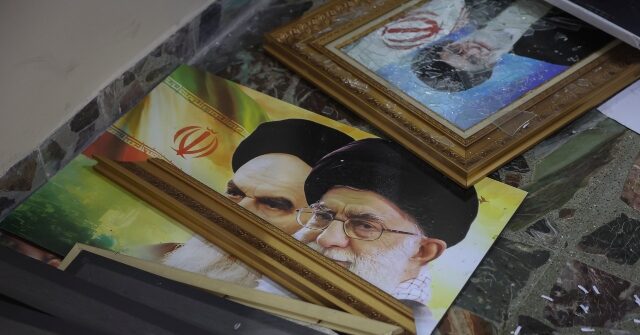In a recent discussion during a Founders Roundtable on Breitbart Fight Club, Dr. Sebastian Gorka, who is set to join the Trump administration as deputy assistant to the president and senior director of counterterrorism, shared his insights on the implications of the potential downfall of the Assad regime in Syria. Gorka described the Assad regime’s fall as a significant setback for Iran, stating that it poses a challenge for the Iranian government, which has relied on Syria both as a client state and as a conduit for its military and strategic operations in the region. Gorka’s remarks underscore the complex geopolitical landscape of the Middle East, particularly how changes in leadership in Syria could alter power dynamics in neighboring countries.
During the roundtable, Gorka engaged with participants who raised questions about the future of Syria in the wake of Assad’s diminishing power. One participant, Eric Kadow, inquired about who might take control of Syria now that a power vacuum has emerged, along with questions about the implications for U.S. foreign policy. Gorka’s response indicated skepticism about predicting the next ruler of Syria, emphasizing that anyone who claims to know the outcome is misleading. He pointed out that the current voices of authority in the region could potentially be jihadist entities, contradicting any assertions of positive change or the safeguarding of minority groups.
Gorka elaborated on how the fate of Assad could influence the ongoing conflicts in Ukraine and the Middle East, particularly concerning arms movements within the region. He articulated that the real transformative potential of Assad’s downfall hinges on the developments that take place before President Trump takes office. By recognizing the impact of power shifts on regional stability, Gorka expressed hope that the erosion of Assad’s power might serve as a catalyst for a more representative form of government in Syria, one that does not bow to extremist factions.
The analysis also highlights the strategic importance of Syria to Iran. Gorka referred to the Assad regime’s collapse as a “sucking chest wound” for Iran, indicating the severe ramifications it would have on Iran’s ability to project power across the Middle East. According to him, the Iranian regime uses Syria to distribute arms and support proxies that threaten not only Israel but also other Sunni Arab states. This paints a picture of a highly interconnected conflict network where the stability of one state impacts several others, further complicating the geopolitical landscape.
Gorka reiterated the importance of the Syrian situation for the broader Middle Eastern landscape, suggesting that if the international community, especially the incoming Trump administration, can facilitate a positive transition in Syria, there is potential for renewed stability in the region. He expressed cautious optimism, stating that should the Syrian people achieve a government that truly represents them—rather than extremist factions or foreign proxies—the Middle East might experience a level of stability not seen for generations. This sentiment emphasizes the imperative of strategic engagement in the region, particularly in light of the evolving power dynamics.
As the discussion wrapped up, Gorka raised concerns about the immediate actions of the Biden administration during the 43 days leading up to the inauguration. He urged that the forthcoming policies could significantly influence both the humanitarian situation in Syria and the broader stability of the Middle East. This underscores the urgent need for effective leadership and coherent foreign policy strategies in times of transition, as the decisions made in this period could have lasting effects on the region’s future. Overall, Gorka’s insights highlight the complexities of Middle Eastern geopolitics and suggest that the potential breakdown of the Assad regime could open avenues for both risk and opportunity in the quest for peace and stability.

